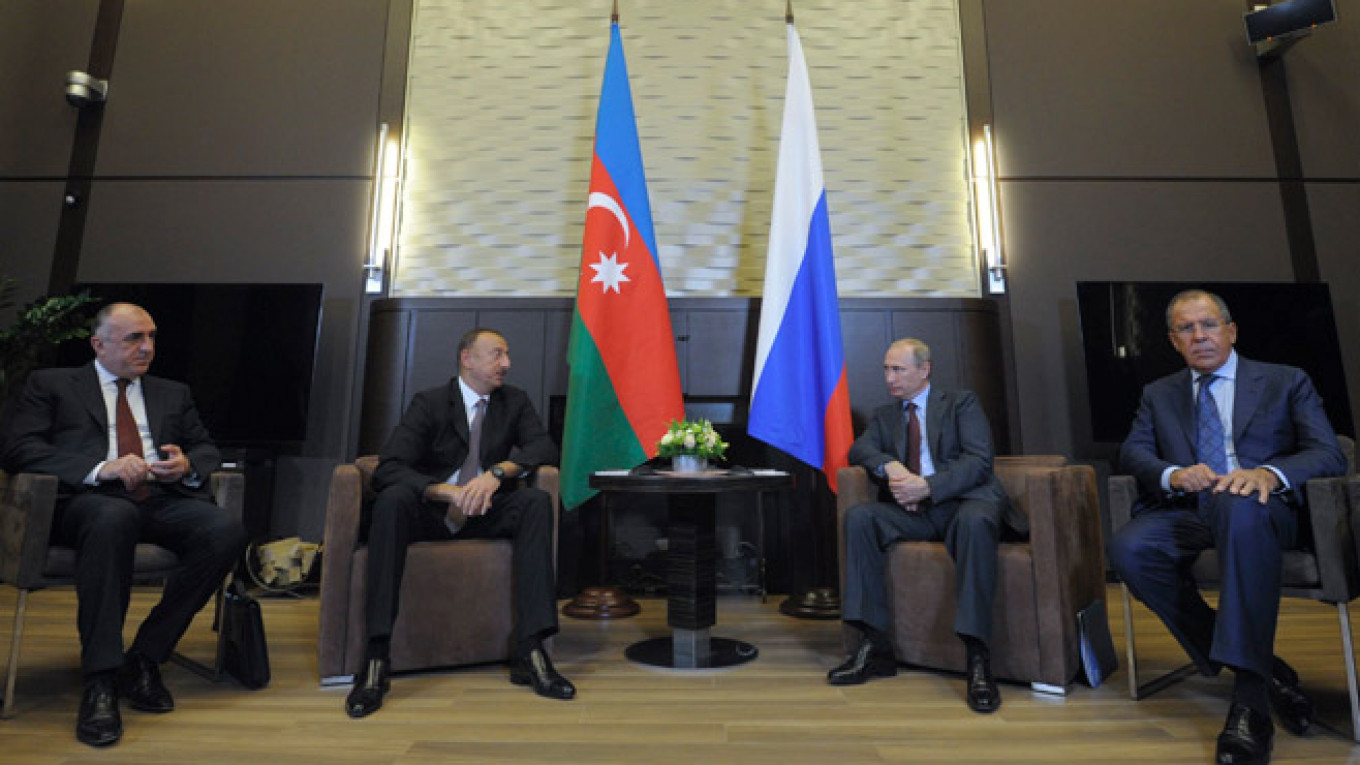On Sunday afternoon President Vladimir Putin hosted an emergency summit with his counterparts from Armenia and Azerbaijan. The meeting was aimed at mitigating the chances of war between the two Caucasus nations over the disputed Nagorno-Karabakh region.
An armed conflict over Nagorno-Karabakh, in which the majority Armenian Christian population attempted to secede from Azerbaijan, was ended by a cease-fire in 1994. But the fundamental issue of the region's allegiance was never resolved and, sadly, war once again appears to be on the horizon. ?
Just days ago, after clashes between Azerbaijani and Armenian soldiers, Azerbaijani President Ilham Aliyev launched a verbal attack against Armenia on Twitter, referring to the neighboring country as "occupiers" and saying that war against "barbarian" Armenians is his country's principal objective.
With Russia on the brink of its own war with the West over Ukraine, it appears that Azerbaijan seeks to seize the moment, unravel the 1994 case-fire accord and regain lost territory. While many analysts rightly point to Ukraine's crisis as the perfect condition for a major conflagration in the Caucasus, it is precisely the correlation between the two simmering disputes that should encourage Russia to negotiate a solution and salvage what remains of its reputation as a worldwide diplomatic heavyweight. ?
There are several interrelated reasons why the immediate settlement of the growing strife between Armenia and Azerbaijan is in Russia's interests.
First, a renewed war in the South Caucasus will threaten Russia's energy markets and transit routes, which it has nurtured for the past two decades. Armenia and Azerbaijan remain major geopolitical targets of Putin's Eurasian Union scheme. Armenia, an important and reliable consumer of Russian gas, is already committed to the organization. But Azerbaijan, although it has also steered clear of the EU and NATO, has so far maneuvered away from Moscow's grip. Negotiating a solution for the conflict would improve Russia's standing in Azerbaijan.
Second, a war over Nagorno-Karabakh will inevitably jolt the temporarily quiescent North Caucasus. Given the ethno-religious underpinning of the Armenian-Azerbaijani strife, Russia has little interest in absorbing the reverberations of a Christian-Muslim clash in its southern republics of Chechnya, Dagestan or Ingushetia. Infamous Chechen commander Shamil Basayev is believed to have led a small band that fought alongside Azerbaijani forces against Armenians in 1992, cutting their teeth in the Nagorno-Karabakh war before returning to Russian territory with sharpened skills and revitalized ambitions.
Third, Russia has little to lose and much to gain from negotiating a diplomatic settlement of the Karabakh conflict. Currently perceived by the West as a bellicose bully seeking to manhandle former Soviet republics that stray from the Kremlin's "sphere of influence," Moscow's greatest accomplishment over the past year has been to reclaim the "Evil Empire" crown. Exercising its diplomatic muscle, rather than brandishing its military might, can help alleviate some of the international community's clamor against Russia.? ? ? ? ?
With increased skirmishing along the Armenian-Azerbaijani line of contact and a growing death toll, the time for a major intervention is now.
Russia is uniquely positioned to take the lead in negotiations. Two decades after it helped broker the 1994 cease-fire, Moscow continues to enjoy much political and economic sway in the region and even maintains a base in Armenia with 4,000 men. Russian soldiers patrol Armenia's borders with Turkey and Iran. Precisely due to Russia's well-known support for Armenian security, the Karabakh matter has remained relatively dormant for 20 years.
Russia's chief diplomat, Sergei Lavrov, likes to boast of his country's increasing use of "soft power" to affect desired changes in the international arena. With the present set of challenges facing his state, no better opportunity for showcasing these skills can be expected than the speedy mitigation of the current South Caucasus crisis.
Indeed, in Ukraine Putin has driven himself into a corner from which even the most adroit politician would have trouble rescuing himself. The growing threat of an Armenian-Azerbaijani war, however, might give him a chance to improve his own situation.
Sunday's meeting between the three presidents is an important step but hardly more than a token display of hackneyed "concern." A sustained engagement by Russian negotiators, within the framework of the OSCE Minsk Group, is needed over the coming months to prevent an Armenian-Azerbaijani war.
Whether through economic incentives, political pressure or international collaboration, there is no question that Moscow has the influence needed to maintain peace in the South Caucasus. With the myriad reasons for avoiding war on its southern periphery, Russia also has tangible motivations for keeping Armenia and Azerbaijan from returning to the battlefield. ?
Russia's mediation of the Nagorno-Karabakh conflict, even if successful, will not solve the Ukrainian crisis, but a triumph of Russian diplomacy at this crucial hour will have just as many benefits as its failure will have ramifications.? ?
Stephen B. Riegg is a doctoral candidate at the University of North Carolina, Chapel Hill.


